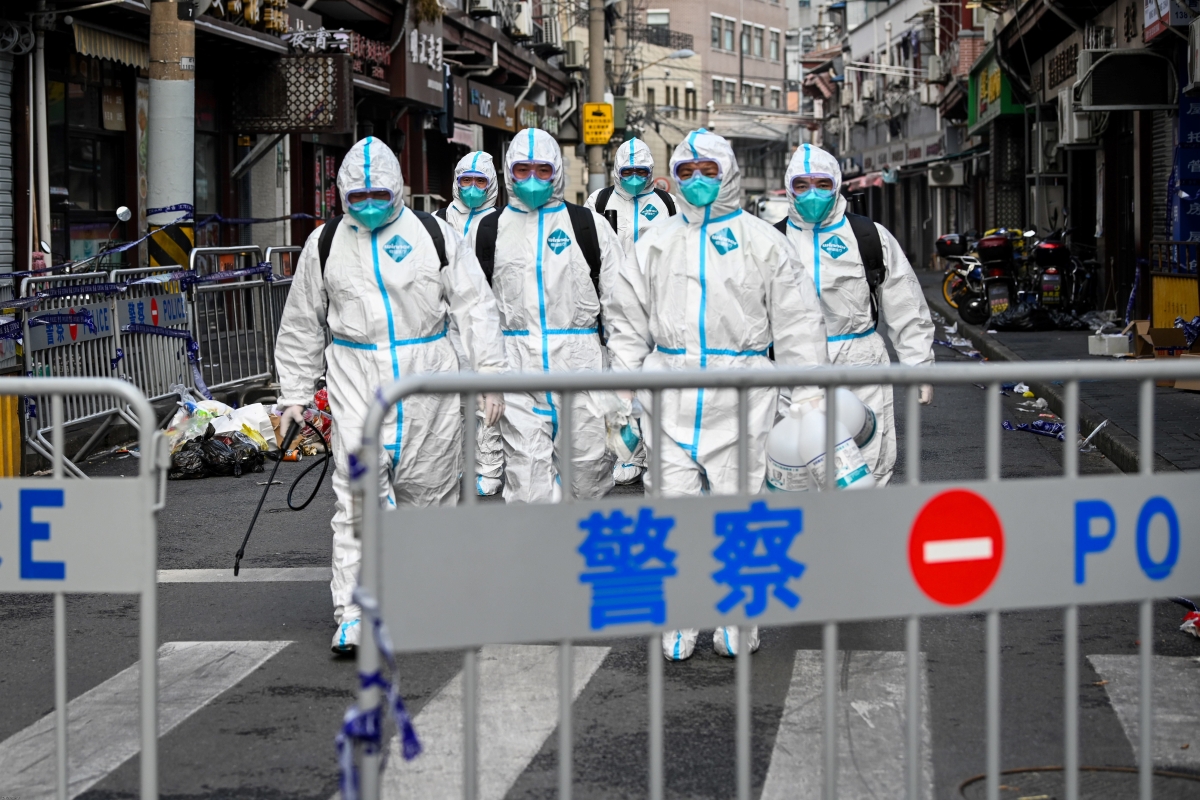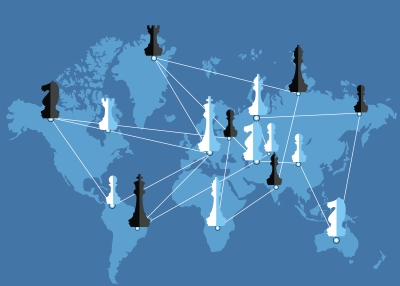ASPI Note: Beijing Risks Being Trapped by its Zero-COVID Policy

April 4th, 2022 by Nathan Levine and Danny Li
What’s Happening: Beijing’s “zero-COVID” strategy is facing its most significant test yet as major outbreaks have emerged in mainland China for the first time in two years.
- On March 28, Shanghai confined its 26 million residents to lockdown for nine days. Announced hastily the night before, the plan splits the entire city into two separate, cordoned-off sections until mass testing can be completed.
The Background: Shanghai authorities had repeatedly ruled out the idea of a citywide lockdown, before suddenly reversing course.
- On March 27, Shanghai’s recorded infections surged to a then record-high of 3,500 cases, accounting for more than half of China’s daily total — likely spurring the sudden decision to re-impose strict containment measures.
- This is a scenario that has now played out in multiple Chinese provinces and cities this year, including in Shenzhen, Hong Kong, and Jilin, which have all experienced significant outbreaks after the arrival of new, more infectious strains.
The Impact: Collectively, the return of mass lockdowns is exacting a heavy economic toll at a time when China’s economy was already facing significant headwinds.
- The parts of China undergoing heavy restrictions now account for around one-third of total economic output, and the disruptions are costing China more than $46 billion — or 3.1% of GDP — in lost output per month, according to one conservative estimate.
- If China maintains its zero-COVID policy, this could shave anywhere from 0.6% to 1.5% off its overall annual GDP — rendering Beijing’s 5.5% GDP growth target for 2022 increasingly unfeasible.
- According to one survey, 20% of foreign manufacturers say they would relocate operations out of China if COVID restrictions remain in place for much longer.
- China has already faced what’s been described as an “unprecedented” capital flight over the past month amid macroeconomic and geopolitical concerns. Holdings of Chinese onshore bonds fell by $10.5 billion in February, while international investors have sold more than $16 billion in stocks since February 20.
Between the Lines: Chinese authorities appear stuck with limited room to maneuver as they try to balance public health, economic, and political imperatives.
- More than 130 million Chinese citizens aged 60 and above, including 40% of those aged over 80, are not yet fully vaccinated — leaving the most vulnerable population in danger if the virus spreads too rapidly.
- But the re-imposition of costly lockdowns raises doubts about the long-term effectiveness of the government’s emphasis on a zero-tolerance, containment-focused strategy at a time when much of the rest of the world has moved toward a strategy of “living with” the virus and opening up.
- Meanwhile the Chinese public’s patience with the zero-COVID policy appears to be beginning to wear thin, with signs of public frustration with government measures bubbling under the surface in recent months.
Xi Jinping’s Position: Chinese President Xi Jinping pledged earlier in March to reduce the impact of COVID restrictions on the economy and people’s livelihoods, telling officials to “strive to achieve the biggest prevention and control effect with the smallest cost, and minimize the impact of the COVID situation on economic and social development.”
- This is an impossible to fulfill order from the boss: to perfectly control the virus with no downside costs. In reality, local officials still have little incentive to risk exerting anything less than maximum control — no cadre wants to be accused of dereliction of duty in containing the virus.
The Bottom Line: This has the potential to become not only a public health crisis for China but a political crisis for Xi as well. The zero-COVID strategy that for much of the pandemic has been a source of pride for Xi and China — previously lauded by state media as having demonstrated “China’s remarkable institutional advantages and strong national strength” — appears to now be at risk of turning into a policy trap.
- Xi has already identified himself as having personally led China to triumph in a “people’s war” against COVID-19. Politically, his reputation will face a significant blow if the virus runs riot or if economic damage forces him to back down from the zero-COVID strategy.
- China’s 20th Party Congress, the key political meeting held every five years, at which Xi is likely to seek a third term in power, is quickly approaching this fall. Unless Xi can stabilize the COVID-19 situation and restore stronger economic growth, rumbling internal dissent over his policy decisions could badly dent his standing at a critical political moment.

